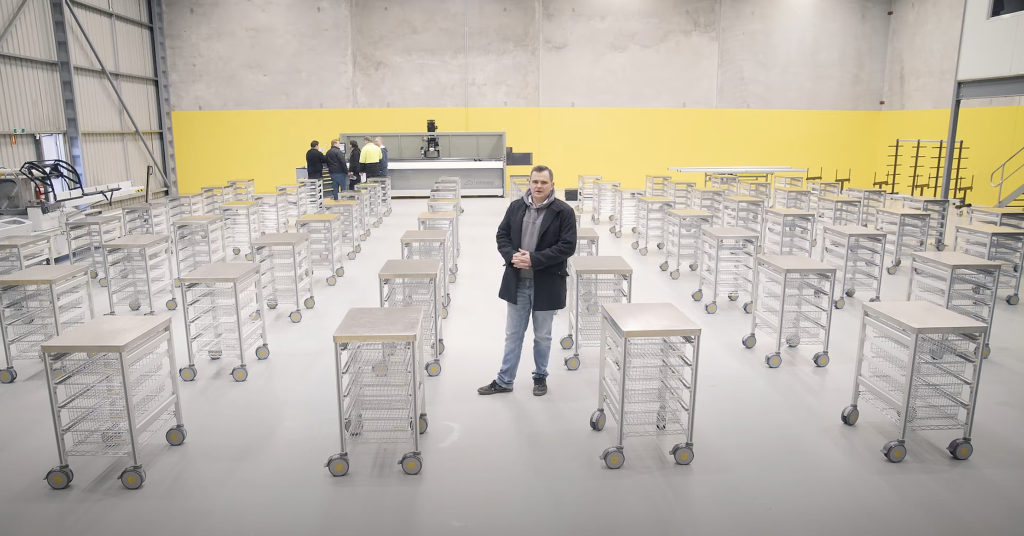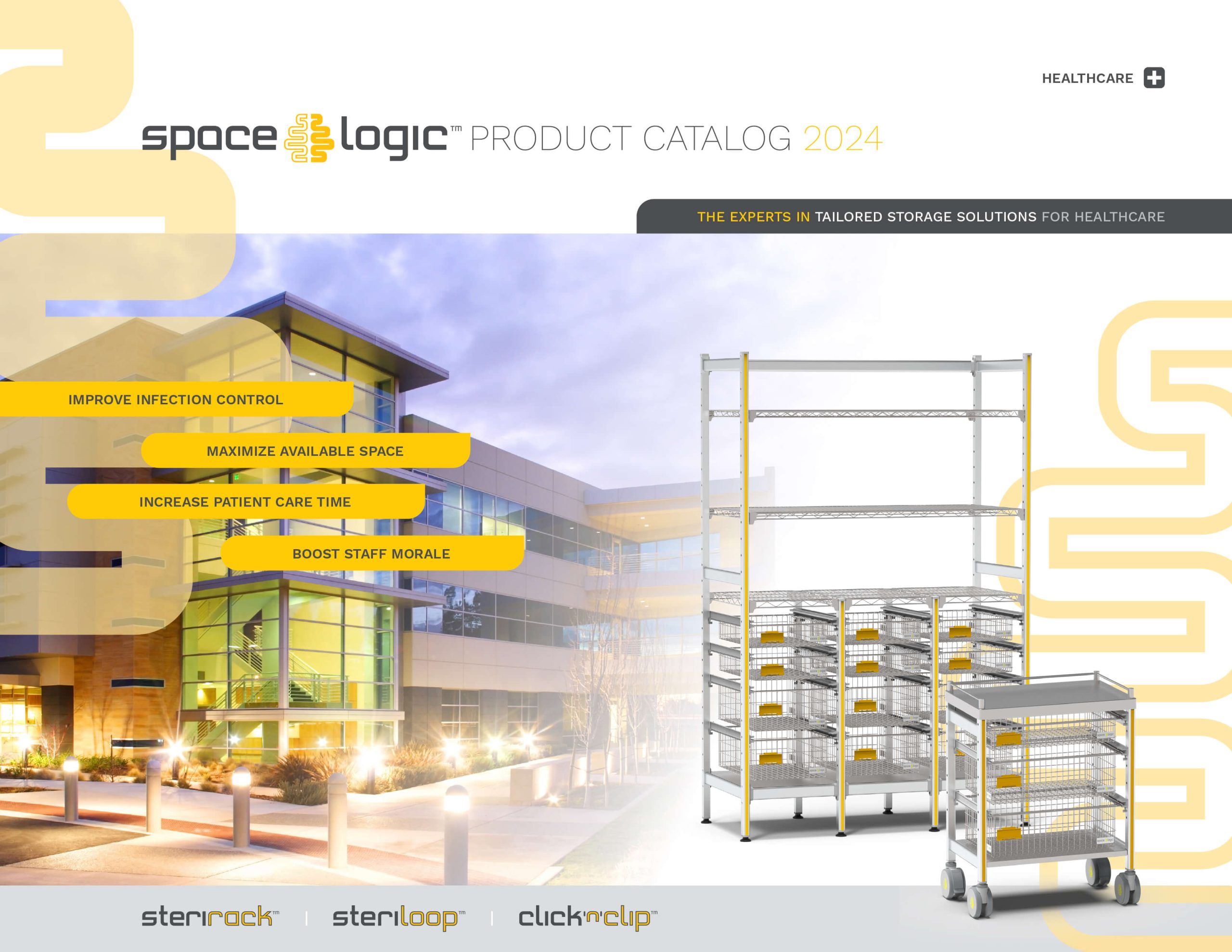Click on the video above to find out about our new facility and our philosophy on complex manufacturing in Australia.
One great example is Young Henrys, an Australian brewer who took the innovative step to up-scale production and supply hand sanitizer. The company ran into problems because there were months-long delays in getting an ingredient, glycerol, as well as bottles to put their product in.
Lloyd Scott, Managing Director at Spacelogic, Australia’s premier supplier of healthcare storage solutions, found himself in a similar boat.
“We had some issues with our supply chain on a couple of products. It was incredibly frustrating, and although in most cases we managed to work around it with only short delays, and those few clients were incredibly accommodating, we realized this was an issue that needed our countries attention. And more specifically, our attention as an organization. That’s because we’ve built our reputation on offering fast, nimble solutions.”
“Spacelogic makes a range of healthcare storage products that can be purchased in a standard range or tailored to our clients’ specifications. This customisation was especially valuable during the initial stages of the pandemic, when our clients in healthcare needed to develop urgent, crisis-specific solutions.”

"We needed to produce high quality, bespoke products fast — so delays in our supply chain were unacceptable,” he said.
Spacelogic made the decision then, hot on the heels of months of research, to install a manufacturing hub at their Orange NSW head office and resolve the problem.
“We’ve been working double time to get this manufacturing hub off the ground, and we’re proud to have product coming off the line already,” Lloyd said.
When asked what he sees in the future for Australian manufacturing Lloyd is really confident about the possibilities.
Historically, Australia was a manufacturing powerhouse after World War II but began sending manufacturing offshore to Asia in the 80’s and 90’s. Unfortunately some of our expertise and ingenuity sailed away with it.
Today, although Australia does really well in most world rankings, like education, healthcare and life expectancy, unfortunately we do really poorly on the Economic Complexity Index (ECI) which measures the productive capabilities of each country and ranks them highest for low ubiquity. Japan sits right at the top of the ECI at number one, along with Switzerland, Germany, Singapore, Sweden, South Korea, the US and Finland. Sadly, Australia is way down in 59th position with Kazakhstan and Lebanon.
Dr Jens Goennemann, the CEO of the Advanced Manufacturing Growth Center, an initiative of the Australia Government, said “The lucky country needs to become the smart country, because we are running out of luck. The simple truth is that if you want to play a relevant role on the international stage, and you cannot make complex things, you will wake up empty-handed.”
Lloyd from Spacelogic agrees, and he believes the answer and the road back for Australia lies in complex manufacturing and the innovations that come from science and technology, such as automation, digitization and new materials.
He believes manufacturing in Australia can’t just be about low-skilled workers doing mundane tasks and making ubiquitous products. Not anymore.
“In my view Australia will have a bright future on the world stage if we use innovation and technologies to create the kind of customized solutions that replace mass-produced products. We can compete on value rather than cost.”
Small to medium sized enterprises make up 97% of Australian businesses, therefore the question arises around how we compete with huge overseas corporations with access to larger workforces.
"Customisation is the key to providing that value, and achieving global reach without the need to produce more goods than a larger overseas competitor,” Lloyd said.
“The employment opportunities are immense because complex manufacturing for small to medium sized businesses is just as much about the design and engineering phases, distribution, and sales and servicing – not just what goes on on the factory floor.”
Although there are some who are concerned about the cost of wages and how these effect competitiveness, Lloyd doesn’t see this as an issue. After all, Germany and Japan have kept their manufacturing sectors profitable for a long time, despite the fact they pay comparable minimum wages to Australia.
According to Lloyd, Spacelogic wants to be part of a new ecosystem of innovative, skilled manufacturers in Australia who contribute high-value bespoke solutions to the global supply chain. And he’s looking for your support.
“We want to encourage Australians to support Australian manufacturing as a matter of national pride,” he said.
Take South Korea for example, who have some of the lowest sales of some of the biggest overseas brands because their people support locally manufactured products. At the same time they’re way up there at sixth place on the Economic Complexity Index. It’s a win-win.
Samsung Electronics is a South Korean giant, and the fourth largest manufacturing company in the world, with revenue last year of 221.6 billion. If we keep in mind that South Korea has a population only twice that of Australia, it gives us an idea of the possibilities.
South Korea’s government and their people have worked together to create a culture that focuses on protecting and growing the countries economy and manufacturing strengths.
“Spacelogic would really like to see Australia prosper from a similar manufacturing culture,” Lloyd said.








